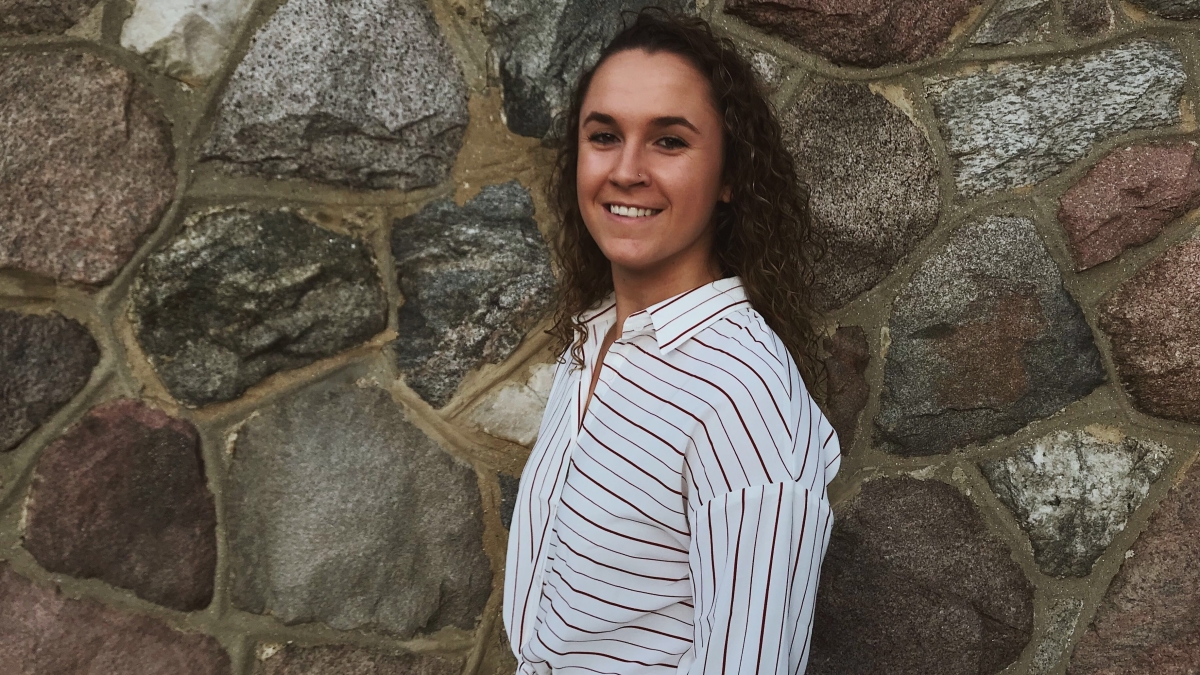Double major Victoria Froh designs her own path

School of Earth and Space Exploration undergraduate Victoria Froh.
Victoria Froh is in her junior year at Arizona State University, and in addition to captaining the women’s rugby team, she is working on a double major in Earth and space exploration and environmental chemistry.
This has allowed Froh to design an educational path all her own — a path that includes a healthy dose of the kind of interdisciplinary study that makes the School of Earth and Space Exploration an exciting place for undergraduate students.
Question: Were you always interested in science, even from a young age?
Answer: Yes. It was always the subject I felt the most attachment to — the challenge of it. Also, my favorite teachers were always science teachers. I took organic chemistry in college, and it was fascinating. Just an intro version, but still!
Q: What brought you to ASU and to the School of Earth and Space Exploration?
A: I’m a National Merit finalist. One of the reasons I came to ASU was because it offers great academic scholarships, which made coming here really affordable, even compared to a state school in Wisconsin where I am from.
The other reason I wanted to come here was because the School of Earth and Space Exploration seemed like such an exciting place to study, as well as a cool community.
Q: What is a memorable experience you have had at the school?
A: Last year I took a course called Fundamentals of Planetary Geology. It was a pretty small class that had mostly graduate students in it. The semester culminated in us going on this really cool weekend field trip to Flagstaff and Sedona, where we hiked Meteor Crater and saw volcanic formations, and even slid down a lava chute. I don't know any other kinds of classes where you get to do something as hands-on and interactive.
Another cool aspect of the school that I was involved in was the first group of students to participate in the SpaceWorks program, which is essentially a string of consecutive classes centered on real-life workforce prep, giving students in all sorts of related majors the opportunity to learn applicable skills and work on project design teams. I was in the first class of students to take it, and it now has online students nationwide and a collaborative program with the NASA Lucy mission. It was a really cool way to get the experience of team involvement early on in my undergrad.
Q: Have you had any mentors in the school?
A: I’ve been in a research lab with Assistant Professor Maitrayee Bose for about a year now. She has quite a few undergrads in her lab that come from all different parts of the school, so we can all come together and learn from each other. It's great to work in an environment with such a range of interests. Not surprisingly, there are also a wide array of different projects going on in Professor Bose’s lab. The project I’m currently working on is looking at different meteorite particles with isotopic anomalies.
Q: What are your plans for the future?
A: I'm planning to go to grad school, but not right away. Especially with having two majors, I need a little bit of a break from school. This summer I want to get more experience doing research. I’ve applied for a bunch of programs. The one I’m most excited about is called DAAD-Rise, which would have me doing research in a lab run by PhD students this summer in Germany.
Written by William Kennedy
More Science and technology

Lucy's lasting legacy: Donald Johanson reflects on the discovery of a lifetime
Fifty years ago, in the dusty hills of Hadar, Ethiopia, a young paleoanthropologist, Donald Johanson, discovered what would…

ASU and Deca Technologies selected to lead $100M SHIELD USA project to strengthen U.S. semiconductor packaging capabilities
The National Institute of Standards and Technology — part of the U.S. Department of Commerce — announced today that it plans to…

From food crops to cancer clinics: Lessons in extermination resistance
Just as crop-devouring insects evolve to resist pesticides, cancer cells can increase their lethality by developing resistance to…